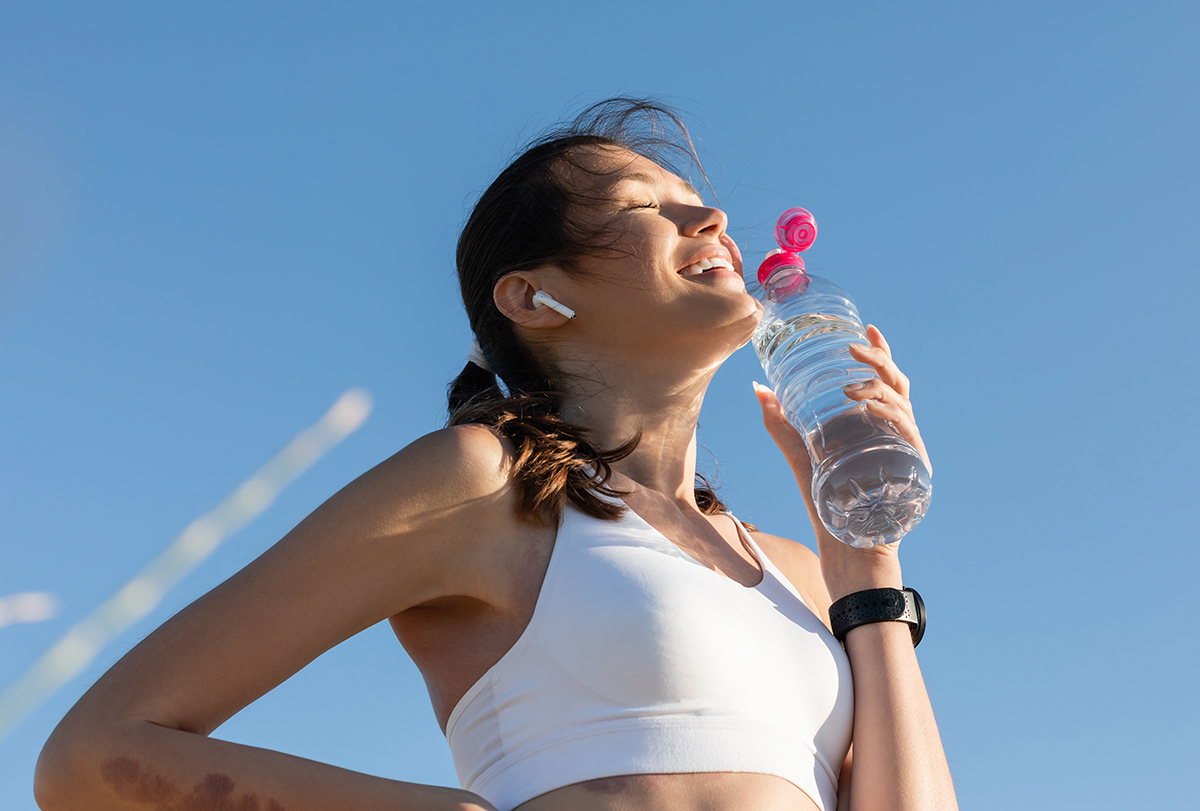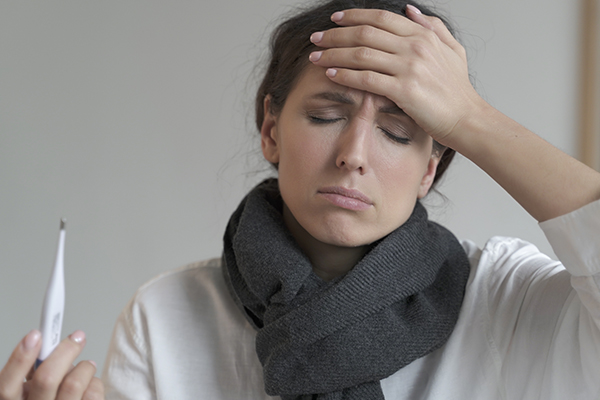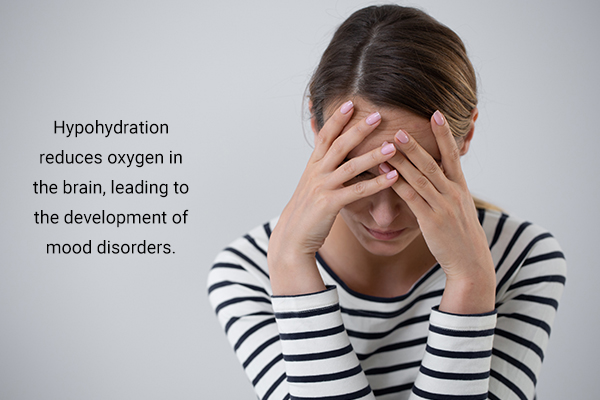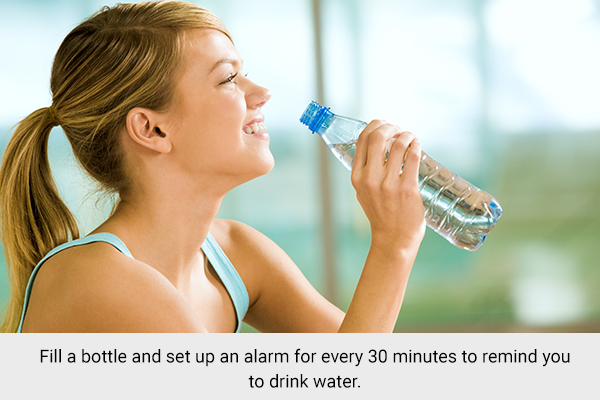In this article:
After a long winter, where most places don’t get sunlight for long periods of time, the upcoming summer months can be a welcome relief.

You may make plans to spend every free minute out soaking up the sun and warmth, which may be a good thing, but when doing so, it is important to ensure adequate levels of hydration for your body.
What Water Does in the Body
It is no secret that water comprises about 50% of the body weight in adults and 75% in infants. Water is needed for essential body functions such as: (1)
- Transporting nutrients to the cells
- Taking waste material to be excreted
- Ensuring blood is at the right concentration
- Regulating body temperature
- Lubricating the joints
- Maintaining skin moisture
According to the European Food Safety Authority, adequate water intake is 2– 2.7 L/day for women and 2.5–3.7 L/day for men. (2)
Importance of Hydration in the Summer
In the summer months, excessive sweating and rising temperatures increase the loss of water from the body.
1. Regulates body temperature

Sweating is the primary way the body cools itself down. Depending on the temperature, humidity, and activity levels, the body can lose up to 0.3 L/hour (in sedentary activity) and 2 L/hour (in a very active state) of water. (3)
Since the heat during summer increases the loss of water, drinking enough water is extremely important to avoid a state of “hypohydration,” which is the loss of electrolytes along with the water via sweat. This also increases the core body temperature, making you feel hotter. (3)
Maintaining core body temperature between 36.1°C and 37.2°C is important to prevent heat-related illnesses such as dizziness, heat-associated cramping, and exhaustion. (4)
2. Maintains heart function
The American Heart Association also makes the recommendation of maintaining adequate hydration levels in the hot months because it is essential for heart health. When you’re well-hydrated, there is less strain on your heart to pump blood, which ultimately reduces the risk of any heart trouble. (5)
3. Allows the body to tolerate heat
A state of hypohydration, if not rectified with drinking water or electrolyte solutions, not only can increase body temperature but also can strain the heart. Eventually, the body experiences a heat strain. Unmanaged heat strain can further cause decreased oxygen delivery to the brain. (6)
In studies done on industrial workers in the summer months, giving oral rehydrating solutions that not only replenish water but also replace lost electrolytes was effective in preventing heat strokes as well as reducing accidents (by improving brain function). (7)
4. Improves mood

During the peak of summer, the heat can be bothersome, which can make you irritable. One reason can be a state of hypohydration reduces oxygen in the brain, leading to the development of mood disorders.
A large study done on young adults showed drinking plain water (more than 5 glasses each day) reduced depression and anxiety. (8)
Other Reasons to Stay Hydrated
Some of the other key benefits of staying well hydrated include:
- Improves muscle tone, strength, and function (9)
- Improves skin appearance and makes skin young looking (10)
- Improves digestion by increasing the diversity of gut microorganisms and reducing the chances of constipation (11)
Symptoms to Watch Out For
According to experts at the American Heart Association, if you are thirsty, your body is already dehydrated. (5)
Some symptoms that may indicate hypohydration during the summer months include: (12)
- Muscle weakness and fatigue
- Feeling tired
- Dizziness and headaches
Tips on Staying Hydrated

Many people find drinking plain water to be boring and often forget to drink their daily water requirement. To make sure you drink enough water throughout the day:
- Fill a bottle and set up an alarm for every 30 minutes to remind you to drink water.
- Prepare sugar-free beverages such as infused water, iced herbal teas, and low-sugar electrolyte drinks.
- Consume water-rich foods such as melons, cucumber, grapes, and berries.
- Avoid drinking too many servings of caffeine-rich beverages such as coffee or black tea since they are not the best sources of hydration.
Most-Asked Questions
How often should I drink water in a day?
You need to assess your activity level, how hot it has been in the day, and your age. Based on all parameters, you need to drink between 2 and 3 L/day. (2)
Who should restrict their water intake?
People suffering from kidney disease or liver disease need to watch their water intake, as poor kidney function will not be able to filter blood effectively to produce urine. This can cause water retention, leading to swelling throughout the body.
Consult your doctor or dietitian to identify how much water you need to drink throughout the day.
Practical Takeaways
- Water loss through sweat is common during the summer months as it is a means to cool down the body. Along with water, electrolytes are also lost.
- If water is not replaced, it can strain the heart, decrease oxygen transport to the brain, increase the core temperature, and even affect mood.
- Ensure you drink 2–3 L water each day by incorporating creative ways to drink more water.
- Was this article helpful?
- YES, THANKS!NOT REALLY


